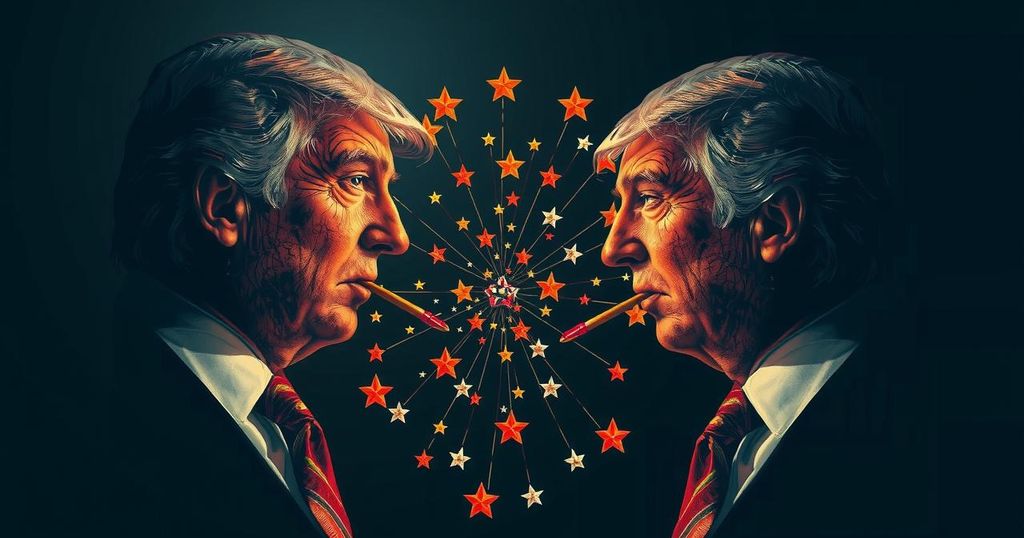Putin’s Manipulation of Trump: An Analysis of Geopolitical Maneuvering

Vladimir Putin’s reaction to Donald Trump’s election reveals an attempt at psychological manipulation, marked by a delayed congratulatory message and public insinuations of obligation. This scenario raises concerns regarding potential foreign influence over Trump and highlights Russia’s broader aims of destabilizing Western democracies. Trump’s approach towards Russia and NATO will be crucial to monitor as scenarios develop.
Following Donald Trump’s electoral victory, Russian President Vladimir Putin promptly demonstrated his influence. Initially delaying his congratulatory message for two days, he left Trump wondering when his admired ally would respond amid a flood of calls from other world leaders. Subsequently, when Trump claimed he had cautioned Putin against escalating the conflict in Ukraine, a Kremlin spokesperson refuted the existence of such a phone call. This contradictory behavior begs the question of credibility for both leaders. As the situation develops, with Putin mobilizing more troops for military operations, Trump may learn firsthand that personal rapport cannot supersede geopolitical interests. Meanwhile, Nikolai Patrushev, Russia’s intelligence chief, publicly suggested that Trump owed his election success to Russian support, insinuating a form of obligation on Trump’s part that could be interpreted as a thinly veiled threat. This revelation raises concerns of potential manipulation or blackmail which, while not substantiated regarding Trump’s direct involvement, casts a shadow on Russia’s agenda of unrest and misinformation. Their previous actions aimed at undermining U.S. democracy validate the need for vigilant scrutiny of foreign interference. In this complex landscape, Trump’s previously stated disdain for multinational alliances, particularly NATO, combined with his tendencies to realign with Russia complicates the scenario. The Republican Party has largely embraced this perspective, creating an atmosphere where Trump’s Cabinet selections align with his views. As developments unfold, observation is warranted regarding whether Trump will adjust his strategies in the face of clear indications that Putin’s objectives may not align with his own interests.
The article discusses the immediate responses and interactions between Donald Trump and Vladimir Putin following Trump’s election victory. It highlights the implications of Putin’s delay in congratulating Trump and the Kremlin’s public statements suggesting that Trump has obligations towards Russia due to their perceived support during the election. Furthermore, the article addresses past Russian operations aimed at undermining American democracy and Trump’s foreign policy stance, especially regarding NATO and military aid to Ukraine.
In conclusion, the relationship between Donald Trump and Vladimir Putin is fraught with complexity, as displayed by Putin’s actions and statements following Trump’s victory. The potential manipulation of Trump by Russia raises significant concerns about foreign influence in American politics. Observing the responses and decisions Trump makes in reaction to these pressures will yield critical insights into the future of U.S.-Russia relations and the integrity of American democracy.
Original Source: slate.com






